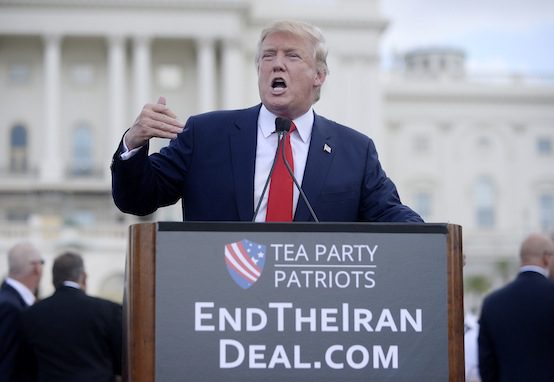Trump and Obama Aren’t Realists

Dan Drezner goes another round with realists:
I don’t doubt that realists disapprove of either Trump or Obama. I just don’t think they’re doing it for realist reasons.
Since I have written on more than one occasion that Trump and Obama aren’t realists, I suppose I should say a few things about this. It’s possible to find examples in which one or both of these politicians have taken a position that most realists would also favor, but when that happens they’re not taking that position for “realist reasons.” It’s also true that neither Trump nor Obama consistently or reliably follows the recommendations of most realists (and they certainly don’t follow Walt’s), so the main problem with calling them this is that it is inaccurate and misleading.
Obama sometimes says things that realists like to hear, but he hasn’t actually governed that way most of the time. He complains about “free-riders,” but then indulges them, supports their unnecessary, reckless wars, and rushes to “reassure” them. Trump seems wary of most military interventions because he thinks their costs exceed the benefits, but his “solution” to that imbalance is to seize foreign oil fields. As I’ve said many times before, Trump is all over the map on foreign policy, and his views are a jumbled mess. It’s understandable that pundits and analysts want to impose some order on his scattered, contradictory, and uninformed musings, but there is not much coherence to be found besides his dislike of “bad deals.” Obama has always been in the liberal internationalist tradition, and he derides “self-described realists” when it suits him. So when others insist on describing him as a realist, it shouldn’t be a surprise that it prompts a negative reaction from people that describe themselves that way. Drezner and others want to credit both with holding a thoroughly realist worldview when the evidence suggests that they don’t. At most, both politicians cherry-pick certain realist arguments or stumble upon them by accident, but otherwise ignore realists’ recommendations and more often take positions in direct opposition to them.
It doesn’t help matters that many of the people that have determined Trump and Obama to be realists don’t care very much for Trump, Obama, realists, or their arguments. Obama has most often been dubbed a realist by his hawkish detractors that have wanted him to be more aggressive in Syria or Ukraine or somewhere else. In its most absurd versions, this has taken the form of calling Obama “Henry Kissinger’s epigone” or a “synthesis of McGovern and Kissinger.” As you will have guessed, these comparisons were not intended as compliments. Many hawks use the realist label pejoratively when they really want to insult or denounce a politician, and that is often how it has been used in Obama’s case. So when someone insists that a candidate most realists abhor (i.e., Trump) is really one of them, many realists will be understandably annoyed.
The dispute is over how broadly or narrowly to apply the definition of realist. Walt wants a stricter definition of realist because he identifies as one and cares about how that tradition is understood and perceived. It is normally the case that the people who identify with a school or tradition of thought are more concerned with such things, while those that don’t belong to it are less careful. The tendency in a lot of commentary today is to call anyone a realist who isn’t on board with every new military intervention, which ends up lumping together figures that don’t agree with one another even on most foreign policy issues. Insofar as Trump and Obama don’t fit the foreign policy stereotypes of their respective parties, they are often classified as realist by default because few are sure what to do with either of them. The fact that many people use the label this way doesn’t prove much, except that the realist label is overused and frequently misapplied. Drezner thinks that Walt is defining things far too narrowly, but I suspect that Walt does this because the label is bandied about so carelessly and applied to people as different from one another as Trump and Obama.
It’s true that no politician or president is going to follow one foreign policy tradition all the time, but if we’re trying to make sense of a candidate’s or president’s thinking and decision-making it is important to judge his overall record to determine how best to explain his views. If we do that, we’ll find that Obama is a mostly conventional liberal internationalist with a strong interest in enforcing international norms and advancing the cause of non-proliferation, and we’ll also discover that Trump is a confused opportunist who views every issue and international relationship as a zero-sum bargain. One or both may end up taking a few positions that realists share, but they are doing so for their own reasons and usually with very different assumptions about how the world works. If we’re trying to describe accurately what their views are, we shouldn’t call either of them realists.